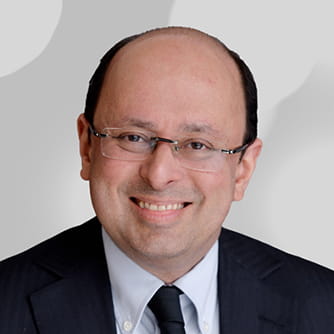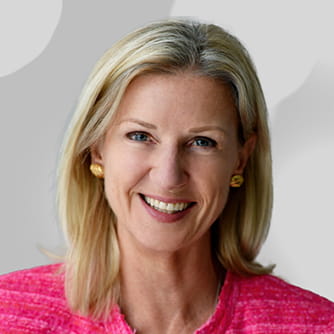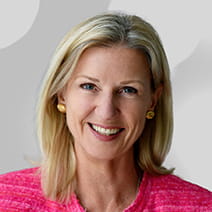Good corporate governance is critical to the successful management of a sustainable business. Liontrust is committed to the principles of the UK Corporate Governance Code. The Annual Report and Accounts sets out how Liontrust has applied the principles and complied with the provisions of the UK Corporate Governance Code.
Board of Directors & Division of Responsibilities
Liontrust is led by an effective and entrepreneurial board whose role is to promote the long-term sustainable success of the company, generate value for shareholders and contribute to wider society. The Board is responsible for organising and directing the affairs of the Company and the Group in a manner that is in the best interests of the shareholders, meets legal and regulatory requirements and is also consistent with good corporate governance practices.
The division of responsibilities between the Chair, Luke Savage, Senior Independent Director, Rebecca Shelley, and the Chief Executive, John Ions, are clearly established by way of written role statements, which have been approved by the Board.
The Chair’s main responsibilities are to lead the Board, ensure that shareholders are adequately informed with respect to the Company’s affairs and that there are constructive relations and communication channels between management, the Board and shareholders. The Chair liaises as necessary with the Chief Executive on developments and ensures that the Chief Executive and his executive management team have appropriate objectives and that their performance against those objectives is reviewed. The Chair holds meetings with the Non-executive Directors without the Executive Directors present on a regular basis.
The Chief Executive’s main responsibilities are the executive management of the Group, liaison with the Board and shareholders, the development and management of the strategy of the Group, the management of the senior management team, oversight of the sales and marketing teams, and to be an innovator and facilitator of change. The Chief Executive discharges certain of his responsibilities in relation to the executive management of the Group via two partnership management committees as detailed in the Risk management and internal controls report in the Annual Report and Accounts.
The Senior Independent Director’s main responsibilities are to provide a sounding board to the Chair, lead discussions related to the succession of the Chair and serve as an intermediary for the other directors and shareholders.
The Non-executive Directors role has the following key elements:
1. Constructively challenging, and contributing to, the development of the strategy of the Company and the Group;
2. Providing well considered and constructive opinions and specialist advice to the Board based on significant industry experience;
3. Scrutinising the executive management team’s performance in meeting agreed goals and objectives, and monitoring the reporting of performance of the Board;
4. Satisfying themselves that financial information is accurate and that financial controls and risk management systems are robust and defensible; and
5. Being responsible for determining appropriate levels of remuneration for executive directors and a prime role in appointing (and where necessary removing) senior management and in succession planning.
John Ions
Chief Executive
John joined the Board in May 2010. Prior to joining Liontrust in February 2010, John was Chief Executive of Tactica Fund Management since it was established in 2005. Previously, John was Joint Managing Director of SG Asset Management and Chief Executive of Société Generale Unit Trusts Limited, having been a co-founder of the business in 1998. John was also formerly Head of Distribution at Aberdeen Asset Management.

Rebecca Shelley
Senior Independent Director, Chair of the Sustainability Committee, nominated Non-Executive Director for Sustainability
Find out moreMandy Donald
Non-Executive Director, Chair of the Audit & Risk Committee, Liontrust Consumer Duty Champion
Find out morePolicies and reports
Risk management
Liontrust takes a cautious and pro-active approach to risk management, recognising the importance of understanding risks to the business, setting and monitoring risk appetite and implementing the systems and controls required to mitigate them.
Liontrust has defined a Risk Universe and uses a Risk Appetite Statement as well as a number of risk frameworks to capture the core risks inherent in our business and assess how those risks are managed and mitigated, the key indicators that would suggest if the risk is likely to materialise together with an assessment that each risk may have on our regulatory capital.
To help identify, manage and control risk, Liontrust breaks it down into eight main categories:
- Credit risk
- Operational risk
- Business risk
- Client management
- Portfolio management, Investment and Liquidity risk
- People
- Regulatory, Compliance, Conduct and Financial Crime
- Other Principal risks, such as Covid 19

People, Planet and Society
One of the key strategies of Liontrust is to be a responsible company and investor. This is reflected in the purpose of the business, which is to have a positive impact on our clients, stakeholders and society.
Find out more
Climate Change and the Environment
We believe climate change will be a defining driver of the global economy, society and financial markets in the future, and that investors will be unable to avoid the impacts of this.
Find out more
Diversity and Inclusion
We are proud of the people who work at Liontrust and we invest in their training, qualifications and development as part of our strategy to retain talented fund managers and employees.
Find out more
Good Corporate Citizen
We seek to be a responsible company and are committed to contributing to and benefiting the wider society.
Find out more
Human Rights
Liontrust’s policies are consistent with internationally recognised human rights principles such as the UN Global Compact. We comply with applicable human rights legislation in the countries where we operate.
Find out more
People
Liontrust’s assets are our people. We pride ourselves on the quality of our people’s knowledge and ability and therefore their positive impact on clients, investors and stakeholders.
Find out more


















